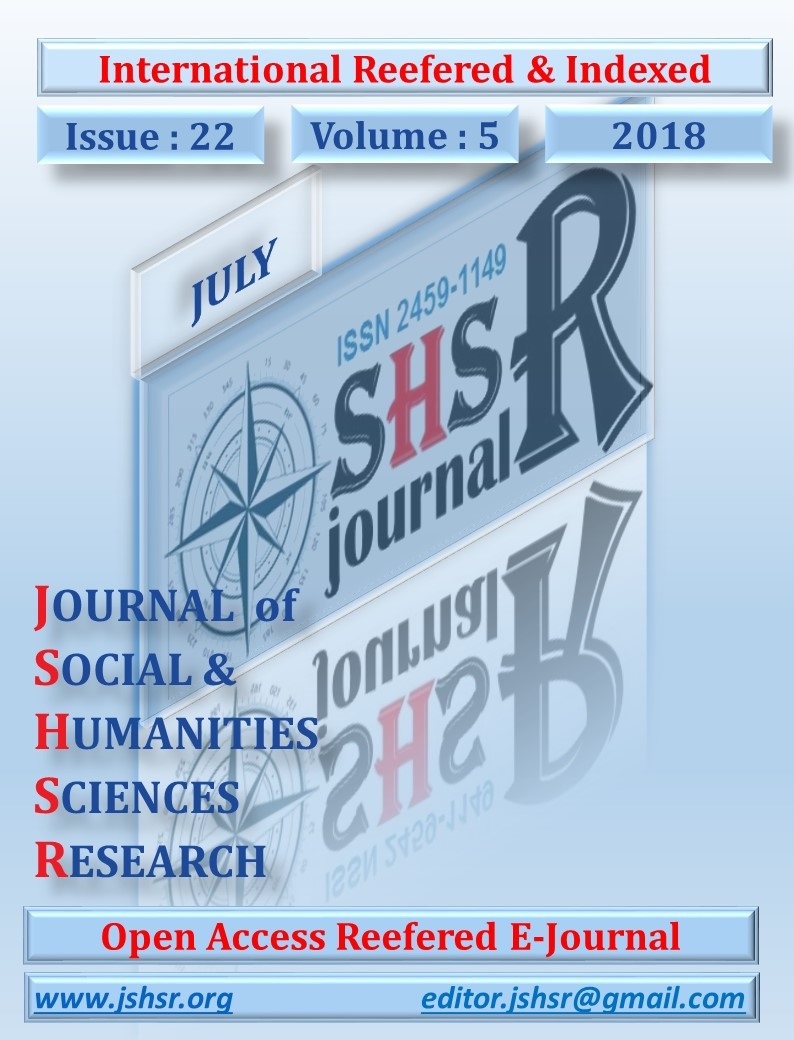A STUDY ON THE RELATIONSHIP BETWEEN SELF-ESTEEM AND SUBMISSIVE BEHAVIORS
DOI:
https://doi.org/10.26450/jshsr.477Keywords:
self-esteem, submissive behaviorAbstract
Reveal the relation between self-esteem and submissive behaviors of lecturers is the basic aim of this study beside that another aim is to determine whether the instructors differ in their self-esteem and submissive behavior according to their individual characteristics. The basic question of the research is “how do the faculty members' self-esteem perceptions affect the subservient behaviors and how are the subservient behaviors and self-esteem differentiated by their individual characteristics?”. The statistical analysis was carried out by means of correlation and difference tests (ANOVA, correlation ve regression) obtained in the research designed by quantitative research method. The 5-point Likert-type 10-point Self-Esteem Scale developed by Rosenberg (1965) was used to determine participants' self-esteem levels. The submissive behaviors of the participants were "Submissive Behavior Scale" developed by Gilbert and Allan (1994) and then re-designed by Allan and Gilbert (1997) with a likert type of 16 expressions. In the measurement of submissive behaviors of the participants, a 5-point likert type 16-word "Submissive Behavior Scale" developed by Gilbert and Allan (1994) and then redesigned by Allan and Gilbert (1997) was used. According to the results of the research, there is a meaningful difference between participants' self-esteem perceptions and submissive perceptions. It was understood that there was a statistically meaningful and inverse (r = -0.386) moderate relationship (p = 0,000) between self-esteem and submissive behavior. In the regression model where self-esteem was determined as independent variable and submissive behavior as dependent variable, it was understood that the model was meaningful (F = 51,255; p = 0,000). The relationship coefficient of the model is 0.386 and the total variance is 14.9%. The beta coefficient is -0.386 and it is important for the self-esteem to show the presence of the reversed effect in the prediction of the submissive behavior, to show that self- esteem is a significant contribution to education
Downloads
Published
How to Cite
Issue
Section
License
Copyright (c) 2018 INTERNATIONAL JOURNAL OF SOCIAL HUMANITIES SCIENCES RESEARCH

This work is licensed under a Creative Commons Attribution 4.0 International License.


